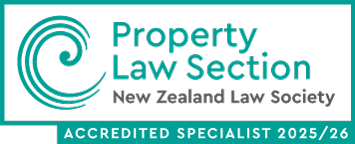Wednesday 11 December 2019
The Labour Government announced major changes to the work visa regime in September this year. Most of the changes will be phased in over the period leading up to July 2021.
We had summarised the proposed changes in 3 articles. They are found also on www.tchanlaw.co.nz/resources
The following are the most significant implications for employers:
After July 2021, employers will not be able to offer to prospective employees overseas a Work to Residency pathway, except for very highly paid employees. The pathway will be available only for employees who will earn twice the median income in NZ. Currently, the median income is $55,000 per annum. After July 2021, the only people who will qualify for a pathway to residency will be those who earn twice the median income at the time i.e. around $110,000 currently. These employees will be almost certainly highly skilled. This income threshold will favour those who are work in the North Island.
Until July 2021, the Work to Residence – Talent (Accredited Employer) Visa category will remain open, although the remuneration threshold has increased to 1.5 times the NZ median income. This is currently $38.25 per hour or $79,560 per annum. Immigration NZ had indicated that those who are approved before July 2021 under that visa category will retain their pathway to residency. Accordingly, Accredited Employers have a last opportunity to offer this to employees who earn over that threshold. Similarly, those who are on Long Term Skill Shortage List with NZ employment earning over that threshold have a final window of opportunity to apply for a work to residency visa.
Immigration NZ has made it clear that for jobs which pay below median wage( i.e. $25 an hour currently) will be subject to a strengthened Labour market test. That is unless they are subject to a sector agreement.
In essence, a strengthened Labour market test means that the Ministry of Social Development (MSD) will have a more central role to work with employers to determine whether there are any NZ job seekers who are suitable, available, and trainable that can be matched to do the job. There will be tighter restrictions for rejections of NZ workers. Employers will not be able to reject suitable referrals and pass the Labour market test unless there are acceptable reasons to do so. Those will include when the job seeker has failed to attend an interview or failed a drug test for a vacancy. Interestingly enough, the wording provided by Immigration NZ is that the failure of a drug test in itself may not be an acceptable reason to reject a candidate. The failure has to be for a vacancy “in a high risk environment”. This seems unreasonable to us, as most applicants who fail a drug test would seem not to be suitable for most employment.
Immigration NZ has also stated that employers would no longer be able to reject an applicant for not having their own vehicle or driver’s licence unless it is specifically required for the job.
Another point to emphasise about Immigration NZ is that there will be stronger focus on requiring employers to pay at least the market rate for the job. MBIE will provide greater transparency about market rates for different jobs and employers are expected to match those when offering employment to their overseas workers. While these requirements have always been there, Immigration NZ have made it clear they will certainly check on compliance much more in future.
The Government is reinstating the ability for lower paid workers to bring their partner and children to come to NZ for the length of their Visa. However, the foreign worker must meet a minimum income threshold to ensure that they can provide support for their family. It should be noted that the partner of a lower paid worker will only be granted a visitor’s visa unless they are able to obtain a work visa in their own right. The practice of some employers getting “2 low-paid workers for the price of 1” will go. Having said that, NZ will still allow for dependent children of a lower paid worker to have access to primary and secondary education as subsidised domestic students. They will, however, not be able to access tertiary education except as fee paying students. This is the same as previously.
Partners of highly paid workers, however, will be able to be granted a, “open” Work Visa.
The 12-month stand down for lower paid workers after three years will remain.
Immigration NZ indicated that the fee for accreditation for a standard employer (i.e. employers employing 1-5 overseas workers) will be between $500-$600. Higher volume employers will pay around $800 and that labour hire companies will pay around $900-$1,000. The duration initially for the accreditation will be one year, but then after the initial 12 months, the accreditation will be renewable two yearly. That is the case except for labour hire companies which must apply for annual accreditation renewals.
Conclusion
The message given to employers at a recent workshop provided by Immigration NZ is that Immigration NZ will hold employers more accountable in terms of both commitment to employing New Zealanders ahead of overseas workers, as well as paying the market rate for overseas workers. The accreditation process is meant to provide both the funding and the process for monitoring compliance. Unfortunately for employers, especially those in the South, it is much harder to offer a pathway to residency for workers. Employers may only work with the workers to increase their work experience and to increase the points which the employer qualifies for under the Skilled Migrant category. After July 2021, the pathway to residence will be reserved only for those who are highly paid.
Teresa Chan
11 December 2019
This article is for general use only. Advice should be sought for specific circumstances. Please consult Teresa Chan at Teresa Chan Law Limited, Level 3, Westpac Building, 106 George Street, Dunedin 9016, ph. 477 1069, or email teresa@tchanlaw.co.nz
KEYWORDS: Work Visa changes, Work to Residency, Labour Market Test, Partners of Workers, Accreditation Fees


